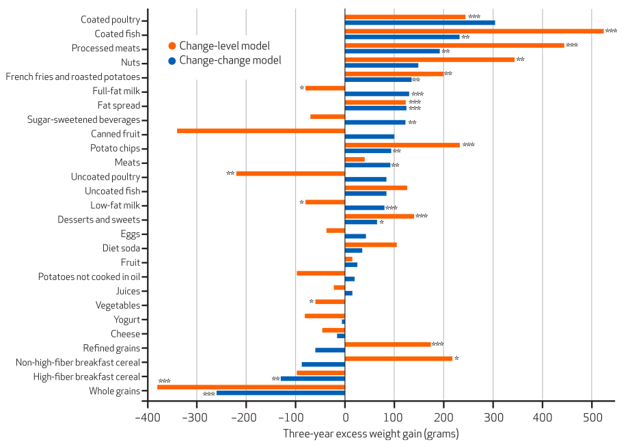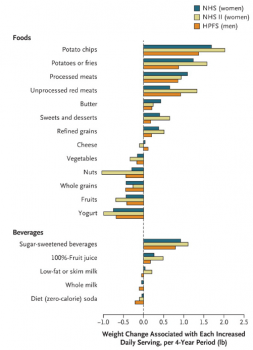 Marketers have done their best to make carrots seem radical and soda seem reasonable. Policymakers have contemplated barring fast-food restaurants from opening near schools. To find out, a group of researchers from Duke–National University of Singapore looked to the Avon Longitudinal Study of Parents and Children, which consists of 15,444 children born in 1991 and 1992 around Bristol, a city in southwest England. For their analysis, they included the 4,646 children who filled out a three-day food diary and had their height, weight, and physical activity measured at ages 7, 10, and 13. They tracked the changes in their BMI and measured how much chubbier or thinner they were than the average kid their age.
Marketers have done their best to make carrots seem radical and soda seem reasonable. Policymakers have contemplated barring fast-food restaurants from opening near schools. To find out, a group of researchers from Duke–National University of Singapore looked to the Avon Longitudinal Study of Parents and Children, which consists of 15,444 children born in 1991 and 1992 around Bristol, a city in southwest England. For their analysis, they included the 4,646 children who filled out a three-day food diary and had their height, weight, and physical activity measured at ages 7, 10, and 13. They tracked the changes in their BMI and measured how much chubbier or thinner they were than the average kid their age.
Their findings, published in Health Affairs this week, show that the children who gained the most excess weight over the course of three years ate more butter and margarine, battered fish and poultry, potato chips, processed meat, French fries, milk, sweets, and sugary beverages. The only foods associated with staying at a healthy weight? Whole grains and high-fiber breakfast cereal.
 (Bars with ** or *** are significant. Data is adjusted for serving size. (Health Affairs))
(Bars with ** or *** are significant. Data is adjusted for serving size. (Health Affairs))
The authors singled out potato chips in particular. “We found potato chips to be one of the most obesity-promoting foods for youth to consume. Potato chips are very high in energy density (383–574 kcal/100g) and have a low satiety index, yet they are commonly consumed as snacks.” (Potatoes that aren’t cooked in oil, the authors write, are fine.)
Potato chips, sugar-sweetened beverages, and processed meats were also some of the foods most closely linked with weight gain in a 2011 study of 120,000 American adults. Unlike this Health Affairs study, that paper did find that adults who ate potatoes and even unprocessed red meat gained weight. Judging by the origin of this report maybe it’s just a sign you shouldn’t feed your kid a full portion of fish and chips. Stay healthy and keep in mind that “Health is not valued till sickness comes”.
Judging by the origin of this report maybe it’s just a sign you shouldn’t feed your kid a full portion of fish and chips. Stay healthy and keep in mind that “Health is not valued till sickness comes”.
(Source: Health Affairs, New England Journal of Medicine)































